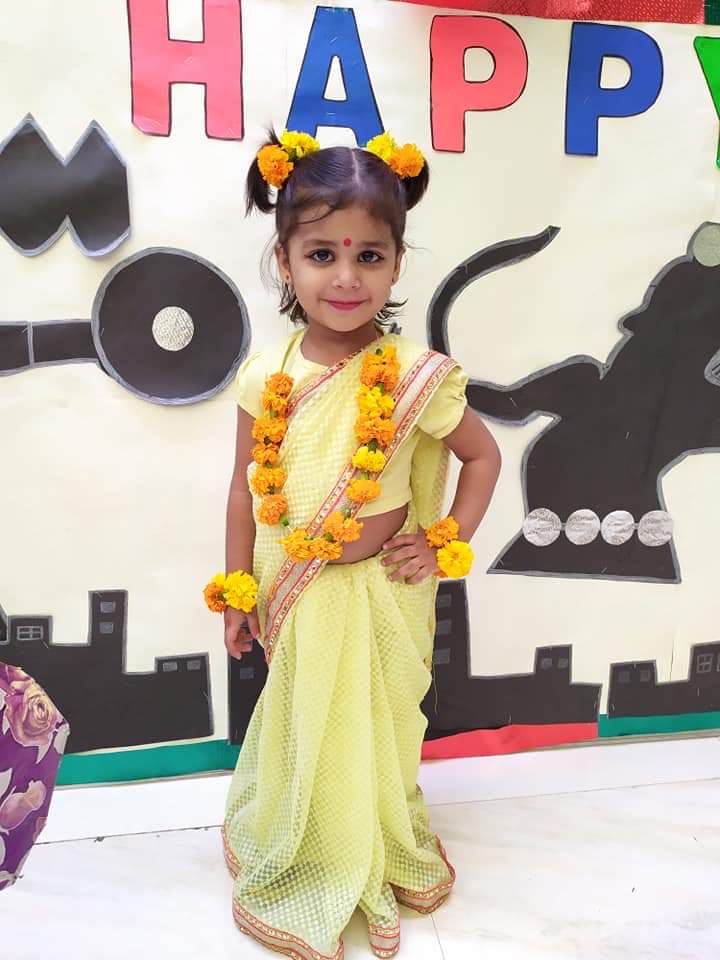Special Activities are conducted for the students with the aim of building strong basic concepts in these tender, formative years. Knowledge is imparted more by way of play-way methods and techniques, outdoor activities and excursions. Some of these activities include:
COLOUR DAY: A Colour Day is observed to familiarize the children with primary colours. Children and the teachers wear clothes of a particular colour and they are made to identify objects of that colour.
Domestic and wild animal fest
� Animals, their sounds, babies and homes are introduced through Animal face make-up
� Shapes are introduced by way of displaying shapes of different objects.
RAW COOKING :Salad-making makes for an interesting as well as tempting activity for learning about fruits and vegetables.
Alphabets and Numbers are taught using flash cards and stencils and even fingers!
Festivals, historical events and special days like Environment Day, Mothers’ Day and Grandparents’ Day are all celebrated with a lot of enthusiasm.
Outdoors visits
☑ Visit to charitable institution
☑ Interactive session with community service like hospital, fire station, post office and petrol pump
☑ Inviting community helpers and health care provides for interactive session.
☑ Educational field trips o places of interest like zoo, park, supermarket, historic monuments.
Regional visits
Gurudwara visit, temple visit and church visit
Motor skills
These skills are developed through activities like fasten button and use of zippers, finger printing, tearing and pasting, building sand castles, threading beads etc.
- Gross motor skills are enhanced through activities like running, jumping, laying mats, fetching materials independently
- Fine motor skills are enhanced through activities like paper cutting, clay modeling, play dough, rolling and kneading, lacing and beading, folding and unfolding of napkins, opening and closing of bottles, boxes, nuts and bolts etc. Various dressing frames like zips, buttons, laces etc.
- Activities are designed for the enhancement of neuromuscular control, eye-hand coordination, prehensile movements, development of pincer and dominant fingers’ grip for future writing skills.
Language Development
- Language skills are improved through Phonetic and auditory games
- Children learn the Recognition of sounds with letters and the Association of sounds with objects in the environment
- Pre-writing skills are established through: Using insets for design, Writing with crayons, Tracing sand paper letters, Making patterns in sand
- Language is developed through structured reading and story telling sessions.
- A circulating library allows children to take books home and have stories read to them by their parents.
- Language activities are practiced through the graded phonic scheme: The pink scheme which includes the 3 letter phonetic words.
Reggio Emilia Approach
The Reggio Emilia approach to education is committed to the creation of conditions for learning that will enhance and facilitate child’s construction of his or her own powers of thinking through the synthesis of all the expressive, communicative and cognitive languages: Hence as a part of this we focus on different aspects of the aforesaid approach
- Parental involvement.
- Following child’s interest.
- Stimulating environment.
- Hundred languages of children.







